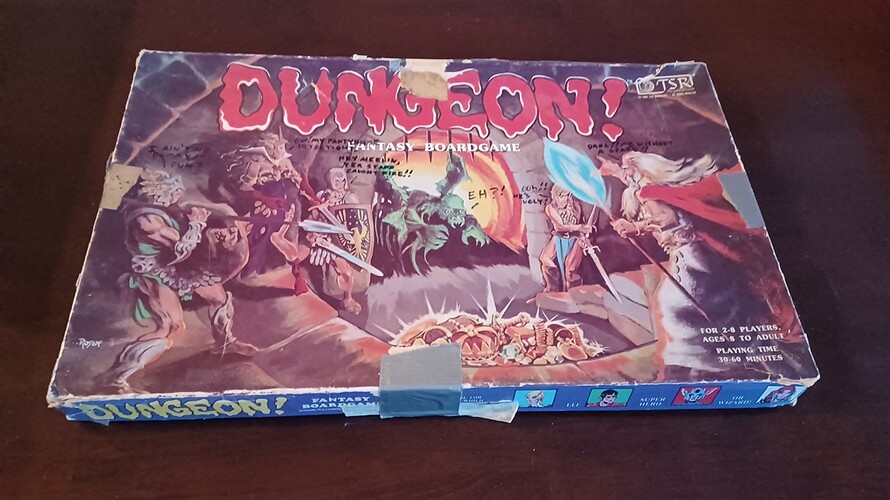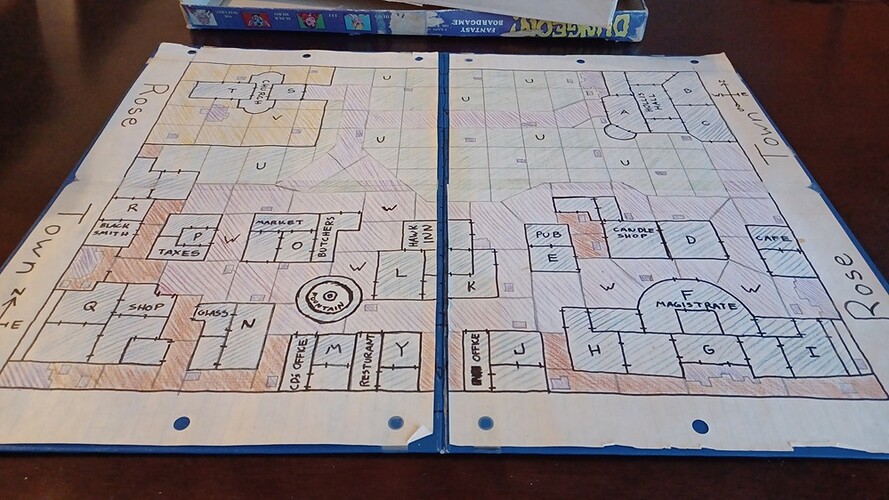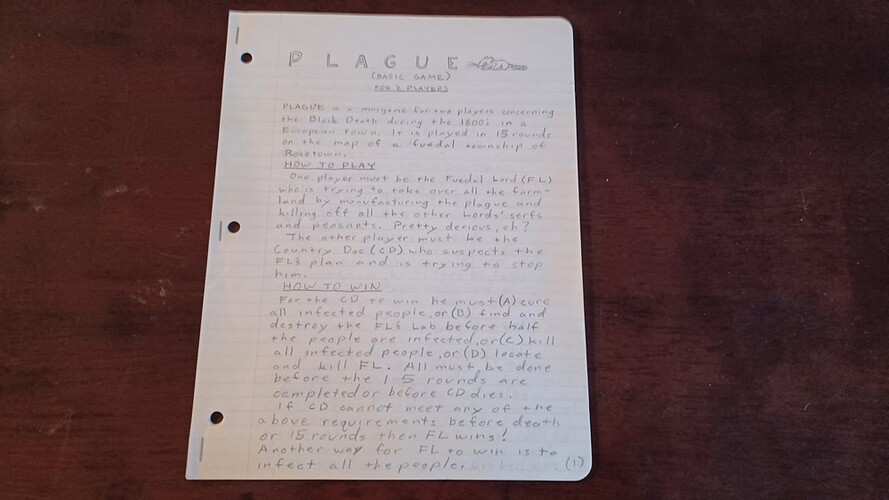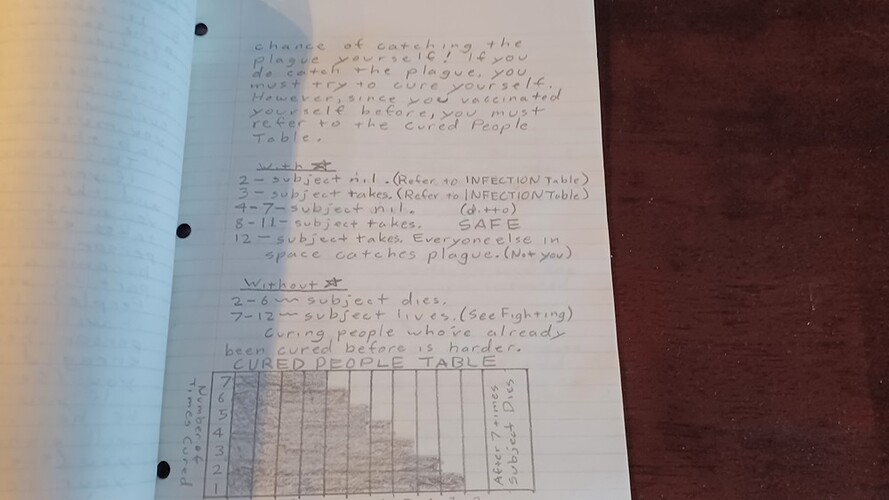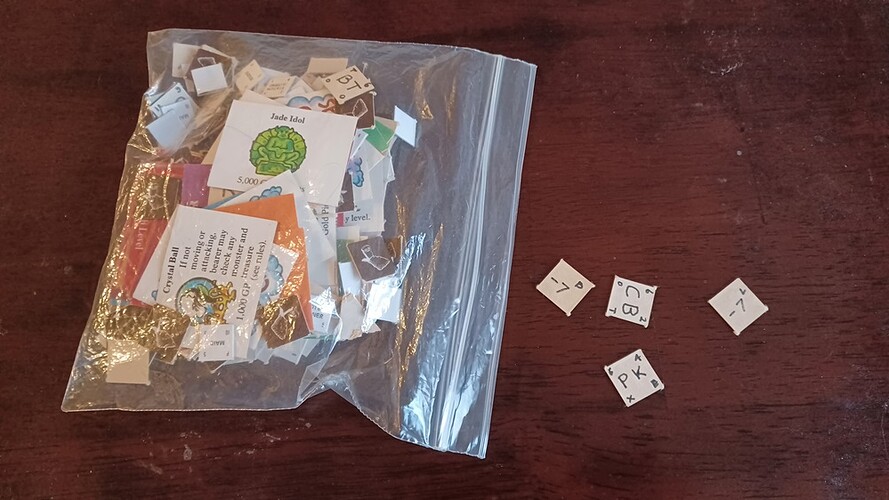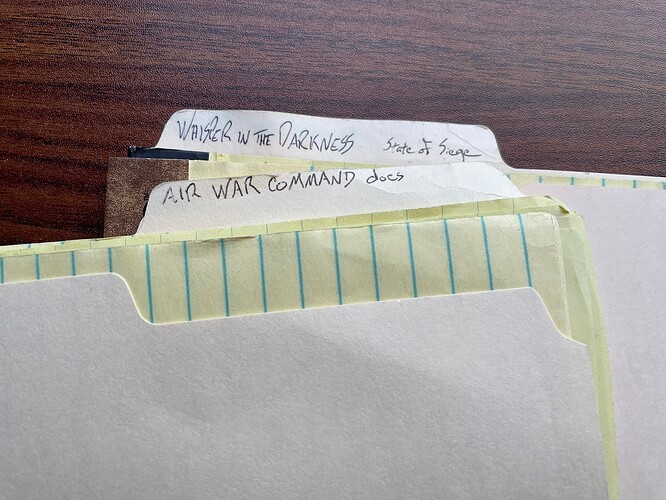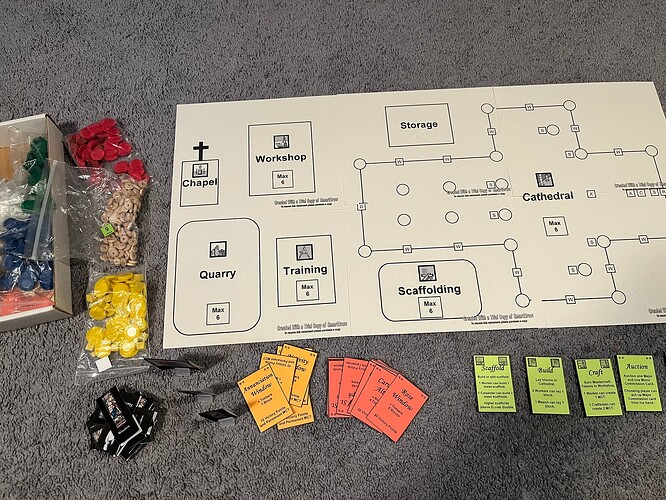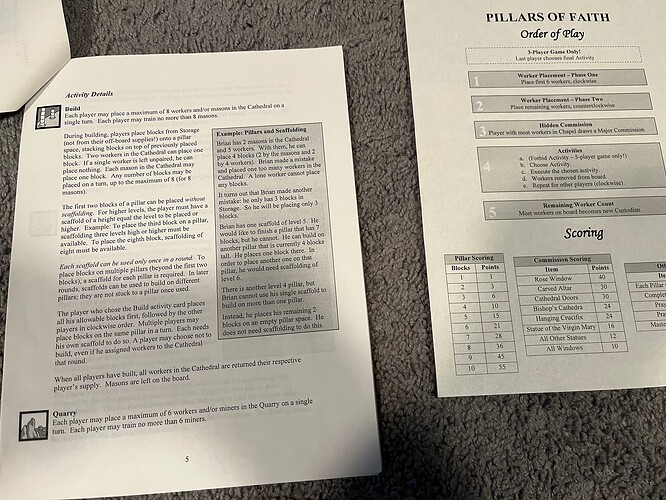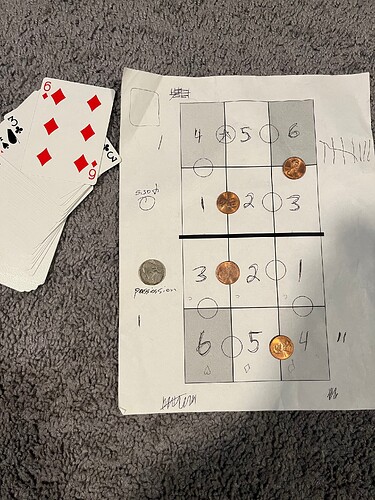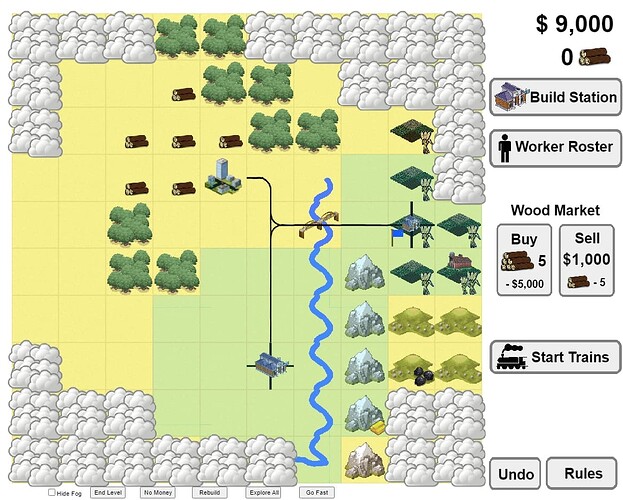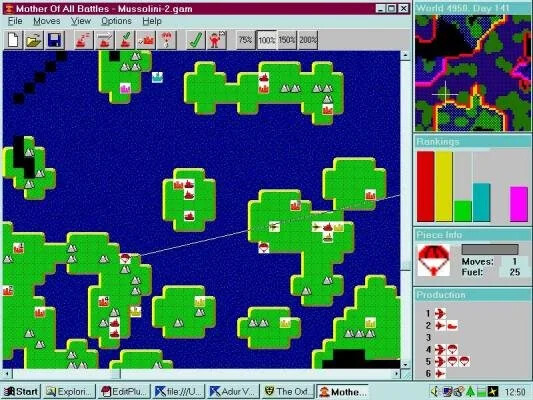I know we have some professionals here that have published their own games for commercial sale, but I’m interested in seeing everyone’s amateur efforts. None of that polished, playtested, pro stuff. I want to see your first fumbling efforts at gamemastery.
Inspired by @BiggerBoat’s blog post:
I’ve been making games nearly as long as I’ve been playing them. When I was around 10, I created a “Battle of the Five Armies” wargame. It was the 70s, and I was enamored with The Hobbit. I remember me and my dad hunkered down on the living room floor, moving little paper chits. It was most definitely not a good game, but it’s one of the few things I can vividly recall from that stage of my life.
Coincidentally, I too created my own game when I was ten!
Here is my well-loved 1981 copy of Dungeon! from TSR:
Inside the box, you’ll find almost nothing left unsullied by my hand. Instead, you’ll find the cannibalized and vandalized board turned into my own kid mind’s interpretation of the town of Arkham, here called “Rose Town” because I wanted a thematic name to go with the idea of a plague and I had just learned that the nursery rhyme song Ring Around the Rosie was about the Black Death. (Ooooh! Wasn’t I just a nerd?) Behold, my creation! PLAGUE!
A barely readable staple-bound set of rules:
Incomprehensible charts!
A bajillion loose hand-made zombie pieces, relics/treasure cards stolen from Dungeon!, and some player tokens from various other games. I think you can see the inspiration of chit text from Avalon Hill type games.
The mechanics, (which admittedly make little sense to me now) are that players start on one side of the town, try to move through the buildings, recover hidden Lovecraftian artifacts, then skedaddle back to an extraction point (a waiting bus or lorry?) with their illicit treasure. During this, a timer based on the number of moves players have made counts down and when it reaches zero, a shambling hoard of zombies starts sweeping from a random edge of town to the other, hopefully beginning right around the time the second or third player reaches their intended relic. Players can try to cure infected townsfolk along the way (which somehow adds to your point total) but going too slowly risks being overwhelmed by the shamblers.
Players take turns moving the zombie pieces. On your turn it behooves you to push them towards the other player. Alternately, a third player can just be in charge of the zombies each round. Obviously, this mechanic really only worked with the third player taking charge. When players alternated movement, the zombies just waffled about and never made progress towards one person or the other.
I remember my friends being very impressed with this freshman game creation and we had fun for a few long summer days in San Diego moving bits around and rolling dice as the imagined zombie hoard swarmed across my cardboard Arkham. Even though the rules were intended for 2 players, we always wound up with 4 or 5 people crowded around moving investigators and zombies around. I don’t even remember if we actually ever finished a game.
Anyway, I expect some of you fellow nerds have your own stories of juvenile attempts at game creation. Give me the tales and pics if you’ve got them!
